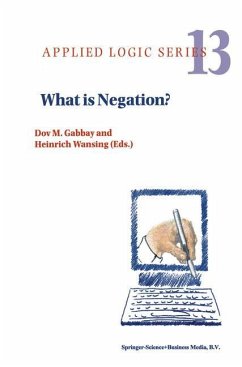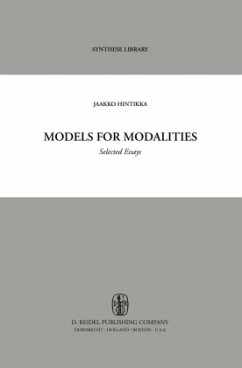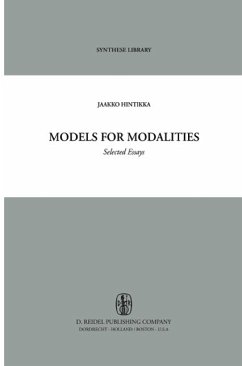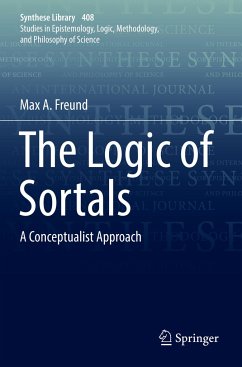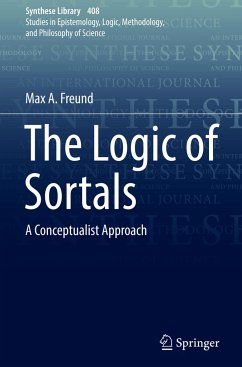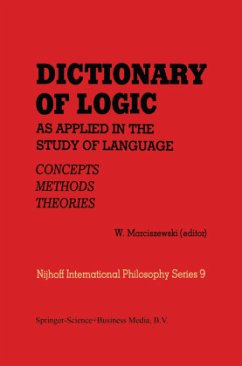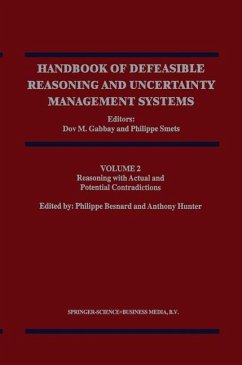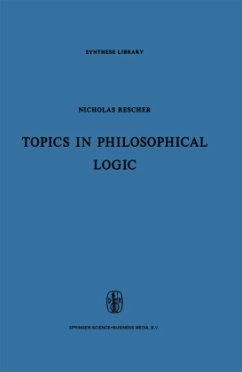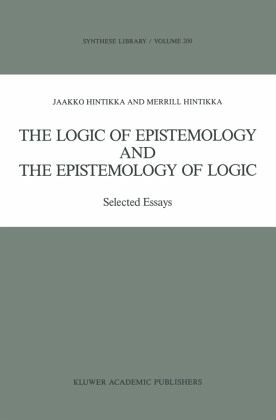
The Logic of Epistemology and the Epistemology of Logic
Selected Essays
Versandkostenfrei!
Versandfertig in 1-2 Wochen
115,99 €
inkl. MwSt.
Weitere Ausgaben:

PAYBACK Punkte
58 °P sammeln!
somewhat like Henkin's nonstandard interpretation of higher-order logics, while the right semantics [or logical modalities is an analogue to the standard of type theory in Henkin's sense. interpretation Another possibility would be to follow W.V. Quine's advice to give up logi cal modalities as being beyond repair. Or we could also try to develop a logic of conceptual possibility, restricting the range of our "possible worlds" to those compatible with the transcendental presuppositions of our own conceptual sys tem. This looks in fact like one of the most interesting possible theories I have d...
somewhat like Henkin's nonstandard interpretation of higher-order logics, while the right semantics [or logical modalities is an analogue to the standard of type theory in Henkin's sense. interpretation Another possibility would be to follow W.V. Quine's advice to give up logi cal modalities as being beyond repair. Or we could also try to develop a logic of conceptual possibility, restricting the range of our "possible worlds" to those compatible with the transcendental presuppositions of our own conceptual sys tem. This looks in fact like one of the most interesting possible theories I have dreamt of developing but undoubtedly never will. Its kinship with Kant's way of thinking should be obvious. Besides putting the entire enterprise of possible-worlds semantics into a perspective, we can also see that the actual history of possible-worlds seman tics is more complicated than it might first appear to be. For the standard in terpretation of modal logics has reared its beautiful head repeatedly in the writings of Stig Kanger, Richard Montague the pre-Montague-semantics theorist, and Nino Cocchiarella.





